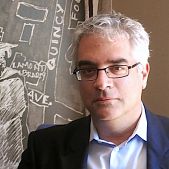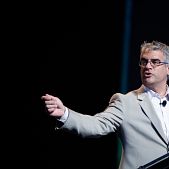
New study by Greek researcher shows that people who use Facebook live longer
Study after study has demonstrated a link between strong social connections and reduced mortality risk. A new study led by the Greek researcher Nicholas Christakis and by the University of Yale and the University of California suggests that it does.
The study, published in the journal Proceedings of the National Academy of Sciences found that people who use Facebook live longer than those who do not, and that certain types of Facebook activities — like posting pictures and accepting friend requests — are associated with a lower risk of mortality.
The findings offer a glimmer of hope in a world full of studies about how social media is making us more envious and less honest as it replaces deep bonds with shallow online friendships.
“There’s a big debate about online social media. There are people that worry that worry it substitutes for healthy social interaction,” co-author James Fowler, a social scientist from University of California.
The researchers started with 12 million Facebook profiles, then narrowed it down to four million people whose identities could be verified through California’s voter registration list. Then they used data from the California Department of Public Health to compare those people to voters who don’t use the social networking platform.
They found the risk of dying in a given year was 12 per cent lower for Facebook users than non-Facebook users.
That doesn’t mean Facebook is necessarily good for you, Fowler cautions. Correlation does not prove causation, so it’s impossible to say whether being on Facebook makes you healthier, or whether healthy people are more likely to be on Facebook.
While the mortality rate for users who accepted the most friend requests was about 66 per cent of the rate for those who accepted the least, “there was no such linear association between mortality and sent friendship requests,” the study notes.
Fowler admits that particular finding was “disappointing,” as it could simply mean that healthy people attract more friends.
“The next step past a study like this is to try to figure out, well, what can we do about this?” he said. “It’s easier to imagine getting people to make friends than getting them to, say, be more physically attractive or getting them to be more popular in some way. It’s a harder thing to change.”
Read more:
N. Christakis: Proved that happiness is contagious












